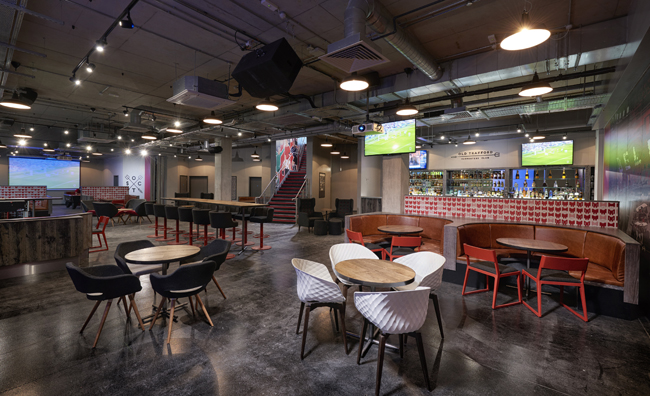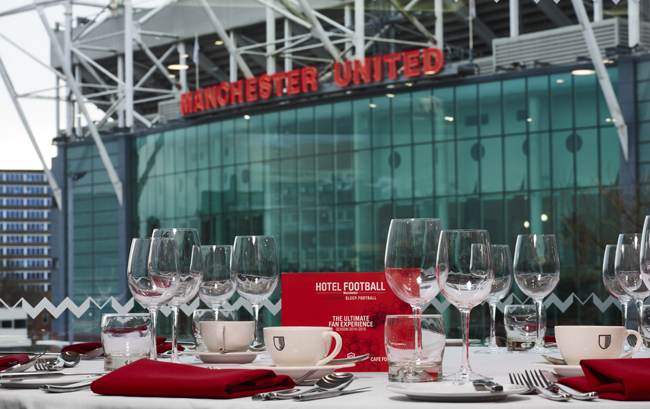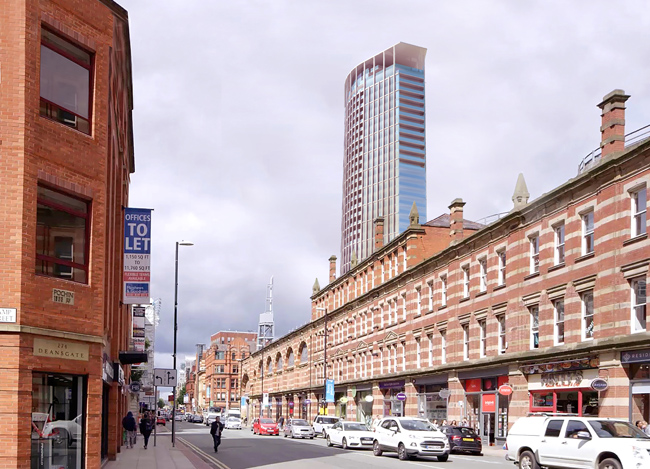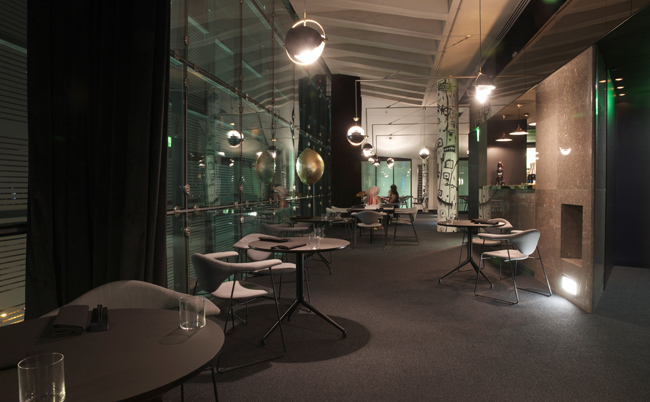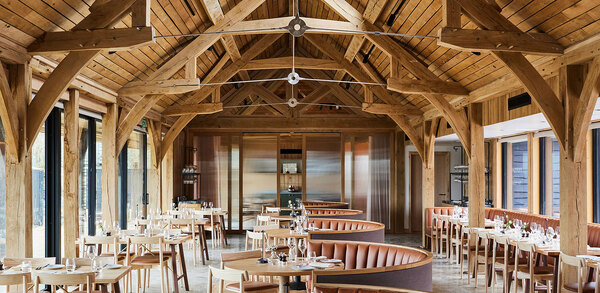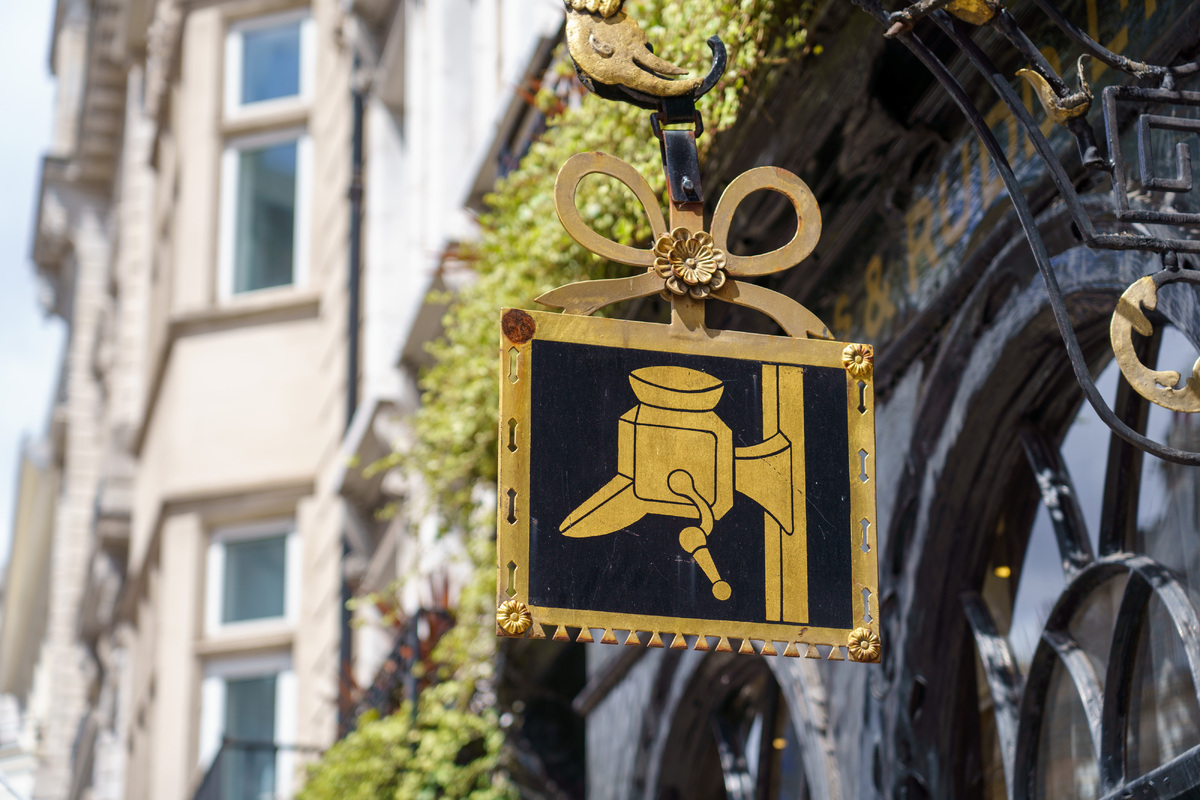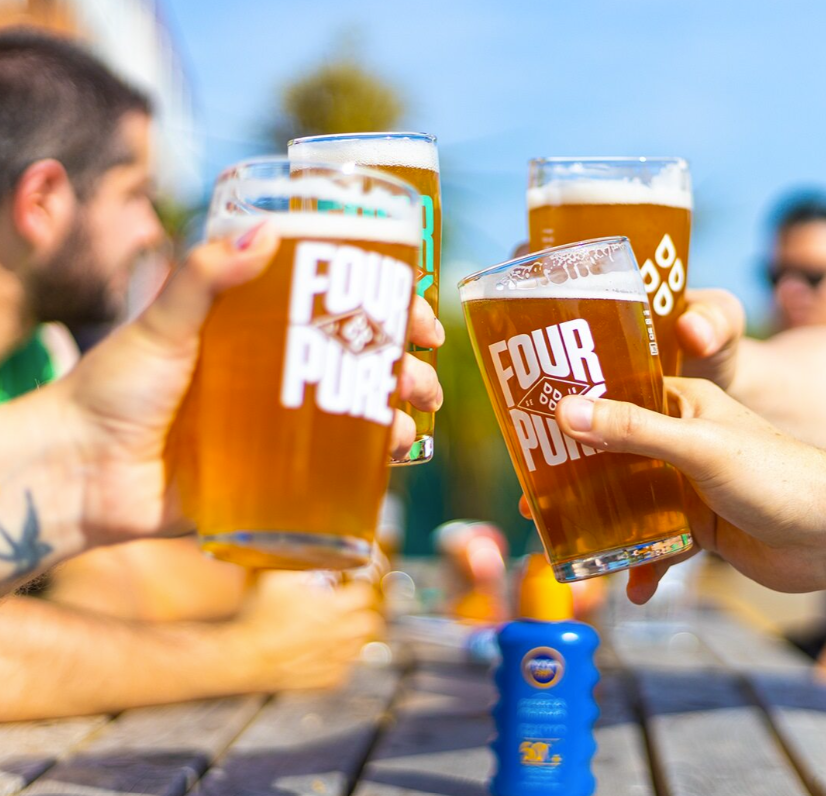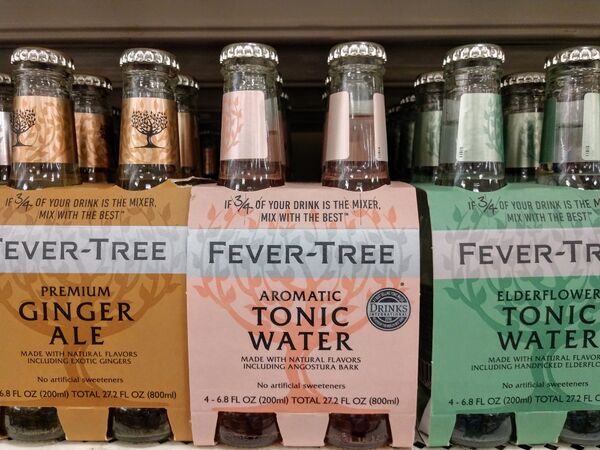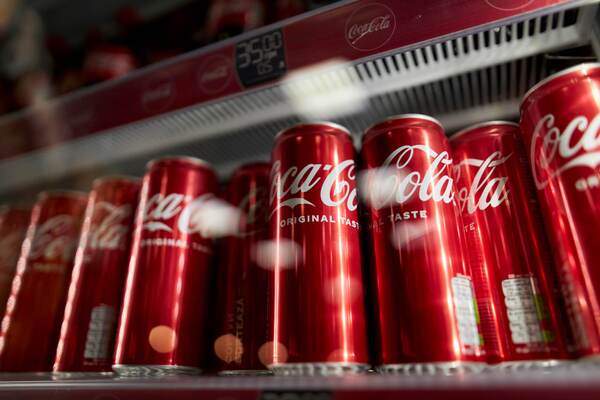Golden goal: Gary Neville on creating and growing Hotel Football
Gary Neville, along with his former Manchester United team mate Ryan Giggs, launched GG Hospitality in 2013. Prior to headlining the speakers at the 2017 Hotel Forum on 29 November, he sat down at Hotel Football to talk to Janet Harmer about growing the business in the present political and economic landscape
Hotel Football opened alongside Manchester United's Old Trafford stadium in February 2015. Has it lived up to your expectations?
I think we are very much where we wanted to be. The hotel has created a lot of attention. My social media [Neville has 3.8 million Twitter followers] is my barometer and tells me the truth. In the nearly three years since we opened I can count on one hand the number of times I've received a negative comment about the hotel.
We wanted to prove ourselves as hospitality operators and I think we've done that. We shunned the corporate brands and that was the right decision. By creating our own management company [GG Hospitality], we've made it more personal. The football references in the hotel are not in your face, they are subtle. We welcome families, business people and football supporters for match-day experiences.
What have you learned over the past four years?
Running the business has made me more alert when I'm staying in hotels: is there a gift? A personal touch? What's the mini bar like? The bathroom? The bed? The food? I check these things all the time. I don't get involved in operations, but I like to look at how we can improve things by looking at other products.
There is a lot I'm still learning in my own personal development as a business leader. My aim is to improve my own qualities to ensure that I can support the businesses better.
Where is Hotel Football going to grow?
We intend to see the start of its growth over the next 12 to 18 months. My preference would be to expand initially in the UK and Ireland, in cities such as London, Edinburgh, Glasgow, Belfast, Dublin, and potentially Birmingham, Newcastle and Leeds.
Beyond the UK, we are looking at Europe and Asia. But it will be a challenge to grow in Asia and the UK simultaneously.
In 2015, the Singapore-listed real estate company Rowsley acquired a 75% stake â¨in GG Hospitality and Hotel Football. â¨Why was it necessary to seek a partner?
It was the intention from day one that we would grow the Hotel Football brand. Our partnership with a listed company meansâ¨that we are now set up for growth. Peter â¨Lim [the controlling shareholder of Rowsley] â¨was an original GG Hospitality shareholder, alongside me and Ryan. Hotels require a lot â¨of capital investment to grow, particularly if you are owner operator.
Tell me about Stocks â" GG Hospitalityâs next hotel, a 40-bedroom boutique property in Manchesterâs former stock exchange building.
Weâre looking at opening in April or May. Iâm really excited about the project. It is a complete departure from Hotel Football â" the two hotels will be chalk and cheese. It is very much in the luxury sector and will be looking to hit the highest service levels. We already have wonderful staff at Hotel Football. In fact, the hotel has just won an award [Peopleâs Choice at the Manchester Hoteliersâ Association Awards] and that is predominantly down to the staff, who are absolutely wonderful. They create â¨a great ambience and atmosphere within the hotel and, as a result, the customer satisfaction is great. What we need to do now is transfer that into a luxury city centre product. Weâve got to go for it and aim for the stars â" and I donât mean Michelin stars.
The interior is being created by local company SpaceInvader. The original banking hall is something of an architectural masterpiece and will be the centrepiece of the restaurant.
Which hotels in Manchester will be Stocksâ main competitors?
I donât necessarily see the other hotels as competitors. Youâve got King Street Townhouse, Great John Street and Hotel Gotham. They are all boutique hotels, but there is enough space for all of us. Weâve now created a new boutique zone in the city and that is fantastic for Manchester. However, there is a real lack of five-star product in the city [Hotel Gotham is the only hotel in the city with five AA stars]. We have got to be aiming for the same kind of service that you receive in London hotels like the Corinthia and the Rosewood.
How will you ensure the service reaches â¨the high levels you are aiming for?
You have to look after the staff. We pay National Living Wage rates for over-25s to all our staff, including those aged between 16 and 25. By growing the company we will be able to offer the staff different experiences and an opportunity to grow themselves. Iâve seen some of the staff go from Hotel Football to the Rabbit in the Moon restaurant and flourish. By growing GG Hospitality to a family within Manchester of 500-800 staff we will be providing lots of different opportunities, which will incentivise employees, particularly the younger ones.
The hospitality industry has got a shoddy reputation around staff and standards. We cannot have that in GG Hospitality. We have to set standards and I believe we do. We believe our staff turnover rate of 34% is lower than many of our competitors.
Are you concerned about the effect Brexit â¨will have on staff recruitment at a time when you are looking to employ more people?
Around 70% of our staff come from the Trafford area around Hotel Football. Unfortunately, we are starting to see a shift, with Europeans leaving. This attitude of being unwelcome to staff is absolutely scandalous. Iâm concerned that we are starting to see â¨language that is unwelcoming to staff. Manchester needs to be an international city.
One of the reasons for bringing in Michael OâHare [the Michelin-starred chef was appointed creative director in January 2016 to oversee food and beverage beyond Hotel Football and Café Football] was to attract staff. That is important as we have now have so much food and beverage outside of Hotel Football.
What are your thoughts on how the hospitality industry can tackle the skills shortage?
It has always been our ambition to have some sort of apprentice scheme, like the one we â¨benefitted from at United.
The challenge of finding staff is not just in this sector, it is even in football these days â" producing coaches is becoming tougher. We are trying to introduce a hospitality element to Academy 92 [a programme that offers young footballers personal skills development, alongside their football training, to prepare them for a range of future careers], a new initiative we have founded with Trafford College and in conjunction with Lancaster University.
Academy 92 is primarily based around â¨business, media and sport, but Iâd also like to look at hospitality courses and get young â¨people excited about the subject.
After Stocks, your next Manchester project is to develop a 200-bedroom hotel in the heart of the St Michaelâs development. Were you surprised at the widespread opposition your initial plans encountered?
If I had known the extent of the opposition was going to be so high, I think we would have rolled back a bit quicker. We decided to look at our original plans again. I think weâve got it right the second time and weâre now on the verge of submitting a planning application for the scheme. It was a reality check, but you have to engage and bring people with you on the journey. The voices were strong and we had to listen. I have no problem with that. We wanted to push the boundaries and challenge what was possible with the design. Ultimately, it is a wonderful scheme. We hope to get on-site by late summer or autumn next year.
Itâs a big project â" a 200-bedroom hotel as well as a boutique hotel in the old police â¨station building, 75 apartments, 150,000 sq ft of office space, and a lot of F&B and retail space.
We want to consolidate our current expansion plans in Manchester. Beyond the city our growth will be focused on Hotel Football.
Manchester has enjoyed a lot of hotel growth in recent years. Is there room for more?
Ultimately, competition is good. Itâs like saying in the Premiership that Liverpool, Everton, Man Utd and Man City canât survive in the same 40-mile radius. There is enough room for good product everywhere. This city is â¨fantastic, it is a wonderful place, but it can still improve with high-end hospitality venues.
Sometimes the older generation disregards new product and looks to squash it, whereas â¨I want new product in the city. I want the â¨challenge of new brands, new F&B products. I want London brands to come to Manchester, I want investment and foreign buyers to come into this city.
We donât do anything for the short term â" it doesnât work for us. Weâre going into St Michaelâs, which weâve been working on for â¨10 years, and weâre doing the college project. All these things are for the long term.
You had a short spell, from December 2015 â¨to March 2016, as the manager of Valencia. How does hotel development compare?
Hotel development is easier than football management. In hotels there are controllables; in football management you are diving in with the devil.



